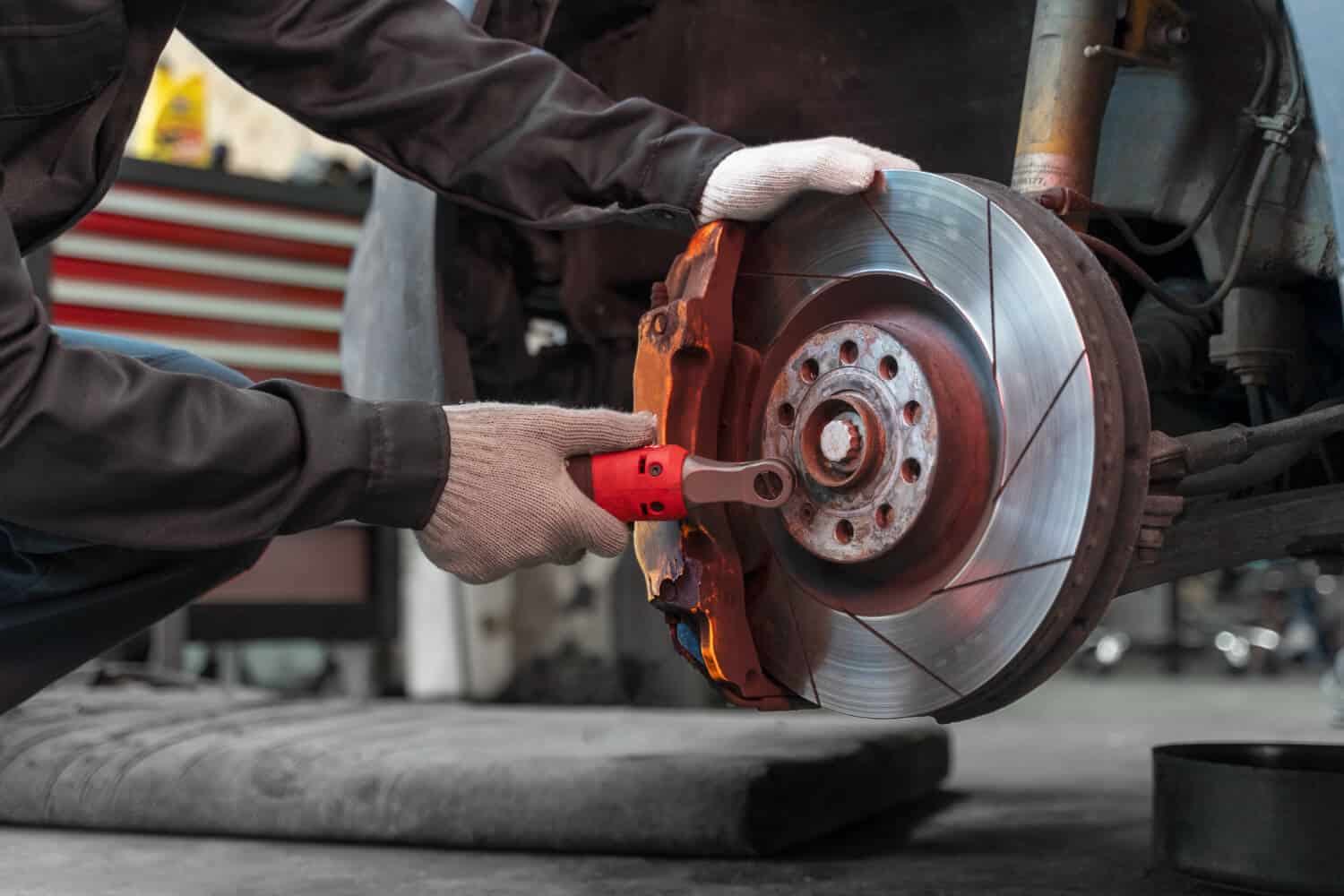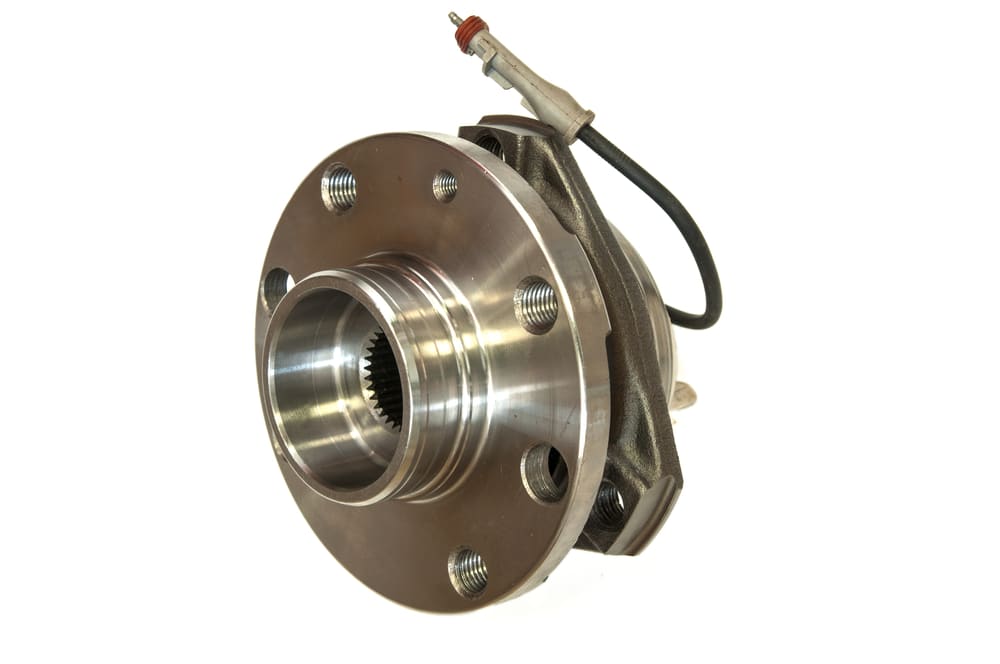Maintaining your car’s braking system is crucial for safety. Brake sensors play a vital role in this system.
Brake sensors monitor the condition of your brakes. They alert you when it’s time for maintenance. Understanding the costs involved in replacing these sensors can help you budget and plan. Whether it’s for preventing accidents or ensuring a smooth ride, knowing the brake sensor replacement cost is essential.
This article will dive into the factors influencing these costs and provide you with valuable insights. Keep reading to learn more about what you might expect to pay and why it’s important to address brake sensor issues promptly.
Introduction To Brake Sensors
Brake sensors are crucial for vehicle safety. Replacing a brake sensor typically costs between $100 and $300. This cost varies based on vehicle make and model.
Brake sensors play a crucial role in vehicle safety. They monitor the brake system and ensure it functions properly. Brake sensors detect issues and alert drivers to potential problems. This helps prevent accidents and keeps everyone on the road safe. Understanding brake sensors can help you maintain your vehicle better. Knowing their types and importance can save you time and money. Let’s explore why brake sensors matter and the common types available.
Importance In Vehicle Safety
Brake sensors are essential for vehicle safety. They detect wear and tear on brake pads. This information helps prevent brake failure. Sensors alert drivers when it’s time for maintenance. Early detection of issues can prevent accidents. Sensors ensure optimal braking performance. They provide peace of mind for drivers. Brake sensors are a key component of a vehicle’s safety system.
Common Types
There are several types of brake sensors. Each has its unique function. Wear sensors are common. They monitor brake pad thickness. When pads wear thin, the sensor triggers a warning. ABS sensors are also crucial. They prevent wheel lockup during hard braking. ABS sensors improve control and stability. Speed sensors measure wheel speed. They work with the ABS system. Speed sensors ensure proper braking force. Knowing these types can help you understand brake maintenance. Each sensor plays a vital role in safety.

Credit: uchanics.ca
Signs Of A Faulty Brake Sensor
A faulty brake sensor often causes the brake warning light to stay on. Other signs include unusual noises and reduced braking performance. Prompt replacement can prevent further damage and ensure safety.
A faulty brake sensor can cause serious problems. Identifying the signs early can prevent bigger issues. Here are some common indicators of a faulty brake sensor.
Warning Lights
The most noticeable sign is the warning light. Your dashboard may display a brake warning light. This light signals a problem with the brake system. Sometimes, the ABS (Anti-lock Braking System) light may also come on. Both lights suggest a need for brake sensor inspection.
Decreased Braking Performance
Another sign is decreased braking performance. You might notice your brakes feel less responsive. The car may take longer to stop. This can be dangerous, especially in emergency situations. Reduced braking efficiency often points to a faulty brake sensor. Watch out for these signs to stay safe on the road. Regular maintenance helps too. If you notice any of these issues, consult a mechanic promptly.
Cost Factors For Replacement
Replacing a brake sensor can vary in cost. Several factors influence the final price. These include the brand and model of your car, as well as labor charges. Let’s dive into these factors.
Brand And Model
The brand and model of your vehicle play a significant role in the cost of replacing a brake sensor. Different cars have different parts and designs. Some brands are more expensive due to their reputation or the quality of their components.
- Luxury brands like BMW or Mercedes typically have higher costs.
- Common brands like Toyota or Honda might be more affordable.
Here’s a quick overview:
| Car Brand | Approximate Cost |
|---|---|
| BMW | $200 – $400 |
| Mercedes | $250 – $450 |
| Toyota | $100 – $200 |
| Honda | $120 – $220 |
Labor Charges
Labor charges are another crucial factor. Mechanics charge differently based on their expertise and location. Urban areas often have higher rates than rural areas.
- Expertise level of the mechanic.
- Location of the service center.
- Time required for the replacement.
For instance, a mechanic in New York City might charge $100 per hour. In contrast, a mechanic in a small town might charge $50 per hour.
Replacing a brake sensor usually takes about 1-2 hours. So, the labor cost can range from $50 to $200.
Consider these factors when estimating the total cost of brake sensor replacement. Being informed helps you budget better and avoid surprises.

Credit: www.yourmechanic.com
Affordable Replacement Options
Brake sensors are crucial for vehicle safety. If they fail, replacement is necessary. Many people worry about the cost. There are affordable options available. You don’t always need to go to a dealership. There are other ways to save money.
Aftermarket Sensors
Aftermarket sensors cost less than OEM parts. They often perform just as well. You can find them at auto parts stores. Online retailers also offer many choices. Be sure to read reviews. Choose a reputable brand. This ensures safety and reliability.
Diy Replacement
Replacing the sensor yourself can save money. You need some basic tools. Many tutorials are available online. These guide you through the process. This option is great if you like working on cars. Make sure to follow safety guidelines. Proper installation is key.
Cost Comparison: Diy Vs Professional
When replacing a brake sensor, cost often becomes a major concern. You have two primary options: doing it yourself (DIY) or hiring a professional. Each choice has its own set of costs, tools, and benefits. Let’s explore these aspects in detail.
Tools And Materials Needed
For a DIY brake sensor replacement, you need several tools. These include a wrench set, pliers, and a jack stand. You’ll also need the brake sensor itself. Ensure you have safety gear like gloves and goggles.
Professionals already have all necessary tools. You only pay for their service and the brake sensor. They usually get parts at a discounted rate, which can save you some money.
Pros And Cons
DIY brake sensor replacement can be cost-effective. You save on labor costs. It’s a good learning experience and gives a sense of accomplishment.
However, DIY comes with risks. Mistakes can lead to costly repairs. It requires time and effort, which not everyone can afford.
Hiring a professional offers peace of mind. They have expertise and ensure the job is done right. There is less risk of errors, and it’s quicker than doing it yourself.
The downside is the higher cost. Professional services include labor fees, which can be expensive. Yet, for many, the added cost is worth the assurance of a job well done.
Finding Reliable Mechanics
Finding a reliable mechanic is crucial when replacing your brake sensor. The right mechanic ensures a smooth process and fair pricing. You need to find someone you can trust. This section will guide you through the steps to find a dependable mechanic.
Reading Reviews
Start by reading reviews online. Customer reviews give insight into a mechanic’s reliability. Check multiple sources like Google, Yelp, and local directories. Look for consistent positive feedback. Pay attention to comments about service quality and pricing. Negative reviews can also be telling. They highlight potential red flags.
Comparing Quotes
Next, compare quotes from different mechanics. Don’t settle for the first quote. Contact several mechanics and ask for estimates. Make sure the quotes include all potential costs. This helps you avoid hidden fees. Also, a higher price doesn’t always mean better service. Compare what each quote includes. Look for mechanics that provide a detailed breakdown.
Tips To Extend Brake Sensor Life
Brake sensors are vital for vehicle safety. They ensure that your braking system works correctly. Replacing them can be costly. Fortunately, there are ways to extend their life. By following a few simple tips, you can avoid frequent replacements.
Regular Maintenance
Regular maintenance is essential for brake sensor longevity. This involves checking sensors during routine vehicle inspections. Inspect them for dirt or corrosion. Clean them with a soft cloth if needed. Ensure that all connections are secure. A loose connection can lead to sensor failure.
Also, replace brake fluid as recommended by the manufacturer. Fresh fluid prevents moisture build-up which can damage sensors. A mechanic can help with these checks during regular service appointments.
Avoiding Harsh Braking
Harsh braking can shorten the life of brake sensors. It causes excessive wear and tear. Try to anticipate stops and slow down gradually. Avoid sudden, hard braking whenever possible. This not only extends sensor life but also saves fuel.
Additionally, keep your vehicle well-maintained. Properly inflated tires and aligned wheels reduce the need for abrupt stops. A well-tuned engine also ensures smooth braking.
| Tip | Benefit |
|---|---|
| Regular Maintenance | Prevents dirt and corrosion |
| Avoid Harsh Braking | Reduces wear and tear |
Frequently Asked Questions
What Is A Brake Sensor?
A brake sensor is a component that detects the position of the brake pedal. It helps ensure proper braking function.
How Much Does Brake Sensor Replacement Cost?
Brake sensor replacement costs vary, typically ranging from $100 to $300. Prices depend on the vehicle model and labor costs.
Why Replace A Faulty Brake Sensor?
A faulty brake sensor can impair braking performance, leading to safety risks. Replacing it ensures optimal braking function and safety.
Can I Replace A Brake Sensor Myself?
Replacing a brake sensor can be complex. It’s recommended to have a professional mechanic handle the replacement to ensure proper installation.
Conclusion
Replacing brake sensors is vital for your vehicle’s safety. Costs can vary. Consider factors like car model and labor charges. Always compare prices from different mechanics. Research and read reviews. Quality parts ensure better performance. Timely replacement prevents further damage.
Regular maintenance keeps your car running smoothly. A well-functioning brake system means peace of mind. Don’t delay sensor replacement. Your safety depends on it.
Disclosure: As an Amazon Associate, I may earn from qualifying purchases at no extra cost to you. Amazon and the Amazon logo are trademarks of Amazon.com, Inc, or its affiliates.
- Amazon, Amazon Prime, the Amazon logo and Amazon Prime logo are trademarks of Amazon. com, Inc. or its affiliates.

I am Sadman, the founder of CarSensorHub.com, where I share my passion for cars and technology. I specialize in writing detailed reviews and helpful guides on car gadgets, accessories, safety tools and many more. My mission is to help car owners discover the best products and tips to improve their driving experience and stay safe on the road.



